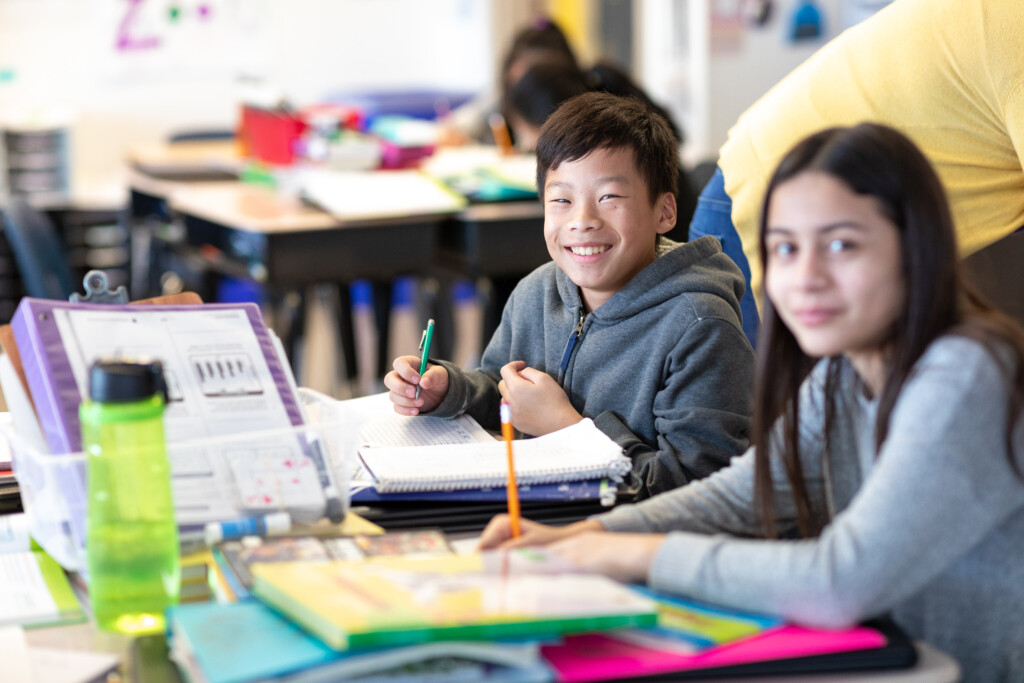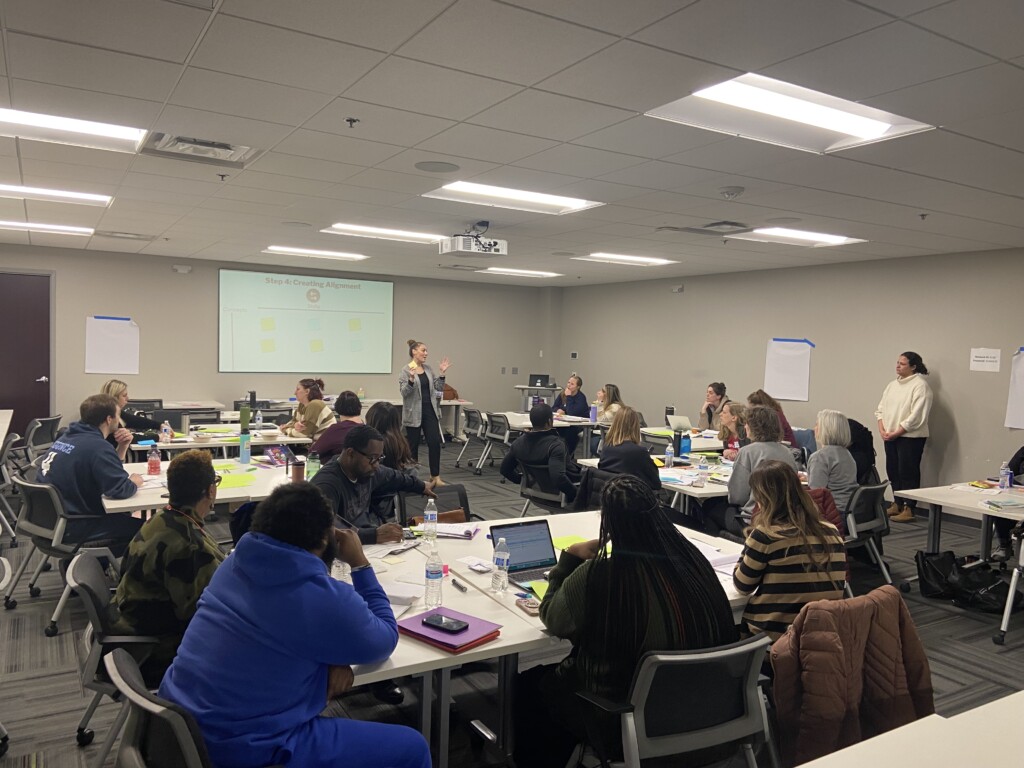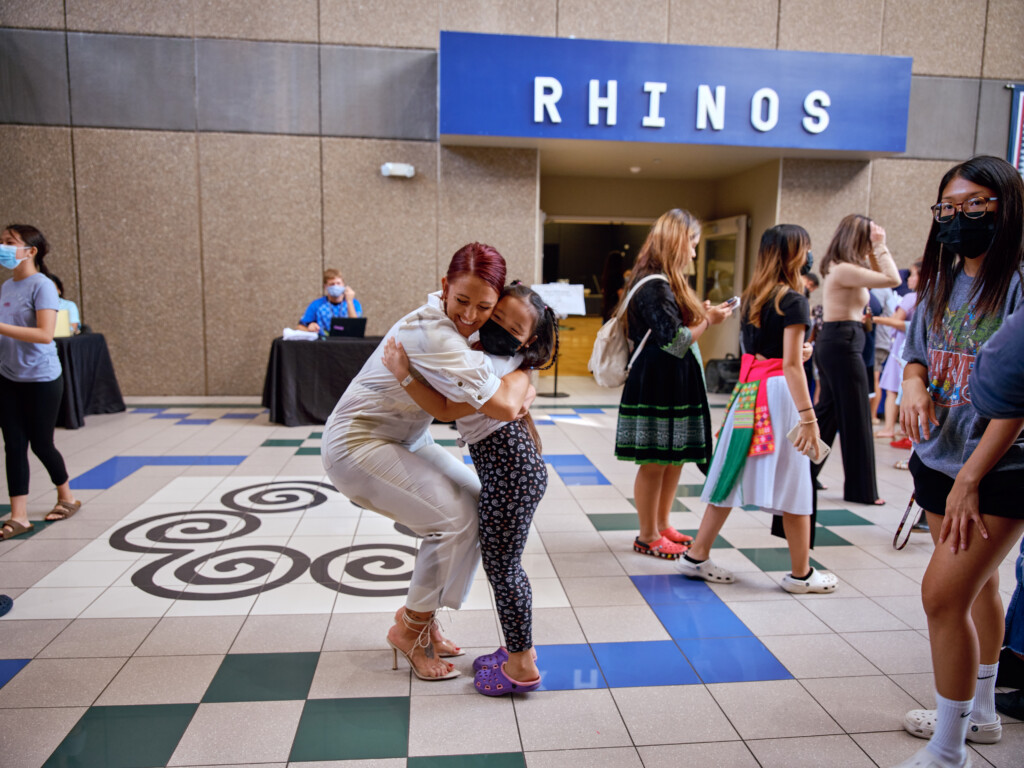Imagine walking into your 3rd grade classroom, feeling anxious and stressed. Maybe you had a rough morning at home or a fight with a friend.
Does the environment you are walking into feel safe? Do you have space to share how you are showing up to class, strategies to navigate your feelings, and strong relationships with your teachers offering support?
Or do you have to push it down and power through the day, doing your best to learn despite all that you are feeling inside?
Based on growing research on the science of learning and development, we know that brain development is driven by relationships and experiences. The settings and conditions students are exposed to affect how they grow throughout their lives. Students are more receptive to learning when their cultural, emotional, and intellectual needs are met.

Building on Schools’ Vision
New Millennium Academy is built on the vision that students’ cultural identity should be seamlessly woven into the educational tapestry. Because of this guiding principle, the concept of Whole Child Design was not new to the team at New Millennium.
However, joining Great MN Schools’ Culture & Climate Cohort allowed them the opportunity to go deeper into the approach, learn from others, and get support implementing new strategies that foster a school environment where all students can flourish.
The Climate & Culture Cohort
For the first time, Great MN Schools and TNTP co-hosted a Climate and Culture Cohort for educators to explore leadership approaches that promote inclusivity, robust relationship-building systems, and integrated social, emotional, and academic development. The cohort consists of a comprehensive two day workshop, peer-to-peer learning, and personalized coaching focused on the elements of whole child design. Each team then put together a design sprint to implement a whole-child aligned improvement idea that matched a need at their school.

“The information in the cohort has been amazing. And being able to collaborate with different schools has been motivating. It has been truly inspiring to be part of a group like this.” – Kingston Xiong

Implementation and Impact at New Millennium
New Millennium’s goal was to center students in the classroom by building their integrated skills and mindsets. To do this, they set up a pilot program focused on building self-regulation skills. The group meets weekly to learn and practice new mindfulness skills in order to better understand and manage their emotions. This includes foundational self-regulation skills like:
- Taking deep breaths
- Asking for a break
- Emotion check-ins
- Zones of regulation
By integrating these principles into the fabric of the school community, New Millennium is nurturing compassionate, resilient individuals prepared to navigate life’s complexities.

Teachers are already seeing transformative shifts in classroom dynamics as well as individual student success. From a third-grader using the new skills to prevent a fight with a classmate to a middle school student using daily check-ins with a trusted adult making a personal breakthrough, the whole child model is helping cultivate environments where every child feels seen, heard, and supported.
Looking Ahead
As New Millennium continues to invest in Whole Child initiatives, the goal is to expand this pilot across grade levels, train new teachers, and continue to foster a positive, affirming school culture. By cultivating environments where emotional well-being, cultural identity, and academic achievement intersect, schools like New Millennium are not just developing scholars but nurturing future leaders equipped to thrive in an ever-changing world.
What Makes a Great School?
Whole Child Learning is just one piece of the puzzle. Learn more about what makes a great school where every student can thrive.
